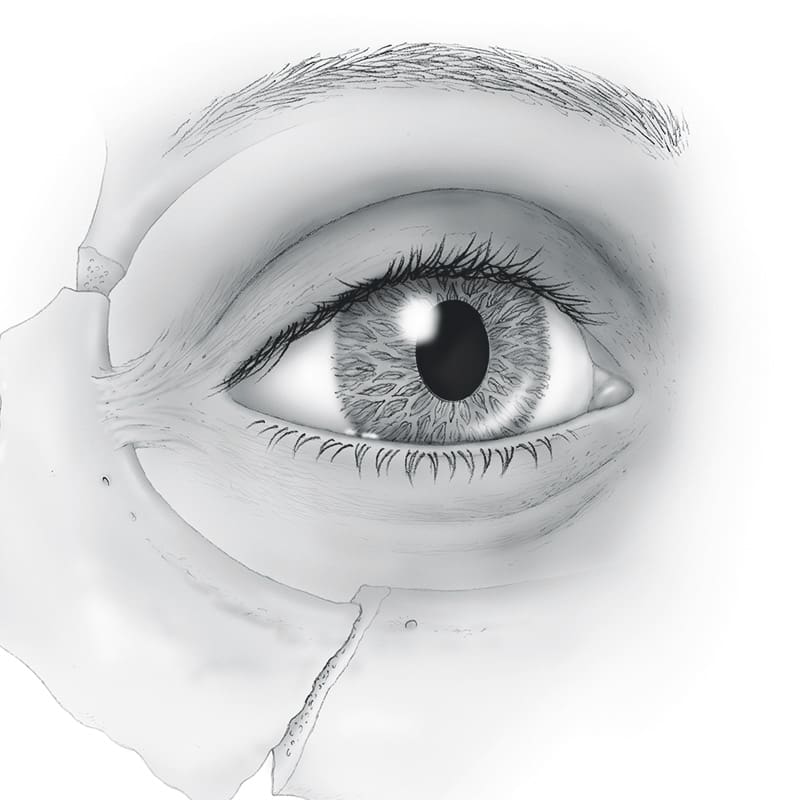Orbital Fractures (Eye Socket Fractures)
What Is an Orbital Fracture?
The orbit is the bony eye socket holding your eyeball, muscles, nerves, blood vessels, and fat. Trauma — like being hit near the eye or head — can break these bones. Fractures often occur along the thin walls between the eye and nose or under the eye.
Symptoms of an orbital fracture can include:
• Pain and swelling
• Bruising
• Double vision
• Numbness in the cheek or upper teeth
• Nausea
• A sunken appearance to the eye once swelling decreases
A CT scan is typically done to identify the fracture location and check for trapped muscle or fat. The eyeball must also be carefully checked for damage.

Treatment Options
Not every fracture needs surgery. Small fractures without significant symptoms usually heal on their own. Your doctor will monitor your condition closely after the injury. Initial treatments may include:
• Cold compresses
• Antibiotics
• Anti-inflammatory medication
It’s important to avoid:
• Sneezing forcefully
• Blowing your nose
• Flying or diving (these activities can worsen the injury)
Your surgeon will decide about surgery within two weeks after the injury. Surgery is usually considered if:
• Double vision is severe or persistent
• There’s significant pain or nausea with eye movement
• The eye appears sunken
Surgery and Recovery
Orbital fracture surgery is done under general anesthesia. Depending on your condition, you might go home the same day or stay overnight for observation.
After surgery:
• Swelling and bruising are common for several days.
• Your eye usually isn’t bandaged, but vision may be blurry at first.
• Cold compresses, antibiotics, or anti-inflammatory medication may continue.
• Temporary double vision or numbness may occur but usually improves.
Most people return to work or school within one week, but avoid heavy activity, flying, or diving for several weeks.
Risks and Complications
Every surgery has risks, including:
• Bleeding and infection
• Persistent double vision or numbness
• Uneven eye appearance
• Rarely, loss of vision
Tell your surgeon if you use blood thinners, as they can increase bleeding risks.
Your surgeon will work carefully to get the best results, but outcomes aren’t guaranteed. Sometimes, more surgery or treatments like prism glasses are needed if double vision continues.
Summary
Orbital fractures can often heal without surgery. When needed, surgical repair can reduce symptoms and improve appearance. Your oculofacial plastic surgeon will guide you through your options based on your specific injury and symptoms.